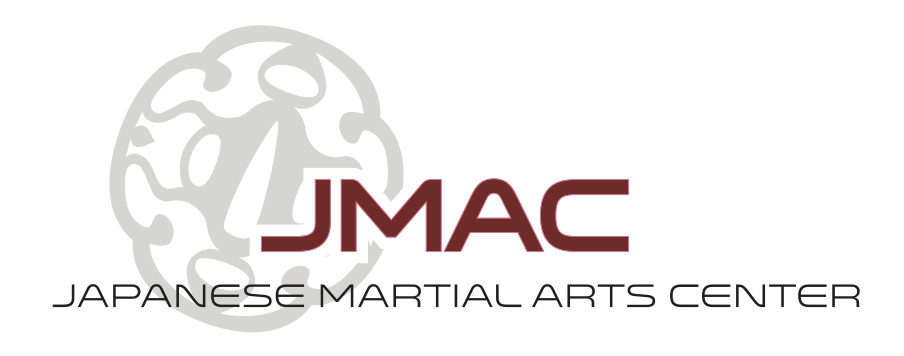Health Benefits of Martial Arts
Reasons Why You Should Take Advantage of Ann Arbor Martial Arts Programs
What if I told you that there was a way to achieve the following characteristics?
- Become happy and relieve stress
- Lose weight
- Gain fast twitch muscles, flexibility, and strength
- Slow the aging process
- Join a community of healthy, well-balanced people
- Become more intelligent
You probably think you’re being sold a pill. That’s not the case. What I have compiled for you is a list of scientifically backed reasons why joining a martial art can help you. Whether you have ‘martial arts’ written on your bucket list or keep a rack of black belts in your closet, doing martial arts today can benefit you greatly!
Anti-Aging
A study that compared martial artists and sedentary 40 to 60 year olds concluded, “The results provide evidence that…. training is an effective intervention that may reduce or prevent [the] declines associated with normal aging” (Douris et al 146).
In the study, martial art practitioners were more flexible, had better muscle strength and endurance, and improved balance. They also tended to have a lower body fat percentage.
Because training in martial arts has cardiovascular benefits, fewer of the martial artists had heart diseases, compared to the group that didn’t practice martial arts. The sedentary lifestyle and high body fat percentage that leads to hypertension, diabetes, and other illnesses did not affect the martial artist practitioners.
If you’re worried about starting at too young of an age, at our Ann Arbor martial arts dojo, you would find practitioners who are as young as their late 70s.
Boosts Your Mood and Relieves Stress
In Mihaly Csikszentmihalyi’s Flow, he describes how there is a state where an “optimal experience” or state of flow can happen. He cites martial arts as being “a specific form of flow” (Csikszentmihalyi 106) where “the warrior strives to reach the point where he can act with lightening speed against opponents, without having to think or reason about the best… moves to make” (106). This state of optimal experience is an accomplice in achieving happiness.
As with any exercise, it has psychological benefits. In an article released on WebMD, researchers stated that regular exercise releases chemicals called endorphins. The endorphins affect the way your brain perceives pain, often triggering a positive feeling in the body. Not only do they act as analgesics (cover the feeling of pain), but they also act as sedatives. This means that the chemicals relieve stress, alleviate anxiety and depression, improve self-esteem, and act as a sleep-aid.
Weight Loss, Flexibility, and Strength Gain
One acronym: HIIT. High intensity interval training means doing periods of short, intense anaerobic exercise. It’s good for athletic conditioning, improving the metabolism, and fat-burning. In an Ann Arbor martial arts dojo where the martial art is more sports oriented, the movements tend to involve high repetitions, or cycles, in a short amount of time. The movements also range from using your own body weight to shouldering someone twice your size.
There’s a huge calorie deficit. You need 3500 calories to lose a pound of fat. Depending on your weight and the martial art, you can singe anywhere from 500-1500 calories in an hour. Compare that to having to run 7 miles at a 10 mph pace or doing three Insanity workouts.
Not only that, but building muscle promotes a calorie burn after you’ve stopped working out. Because martial arts involve a combination of slow and fast twitch muscle conditioning, you promote muscle development.
In a study done on sedentary men and women, it was shown that after 15 weeks of strenuous HIIT activity, type I and IIb muscle fibers improved dramatically. The first muscle type is good at resisting fatigue, whereas the second muscle type increased glycogen metabolism.
Martial Arts Enhance Mental Performance
In an article from BotBot, studies showed an improvement in memory, enhanced problem-solving skills, and reduced risk of Parkinson’s or Alzheimer’s after taking part in an exercise regimen. The most effective types of exercises were aerobic and resistance-training methods, both of which can be found in the martial arts. What’s more, it doesn’t matter when you start. Exercise yields immediate cognitive improvements.
Martial arts are different from other forms of exercise, because a lot of it requires tactical thinking. This means an increase the brain’s ability to learn, or plasticity. Resistance training, flexibility or coordination, and aerobic movements all add up to enhanced brain plasticity.
Cultivate Friendships
As the saying goes, “Birds of a feather flock together.” In a study that looked at how people stay happy, it was found that happy people tend to spend time with other happy people.
You’re also in an environment that often requires trusting a partner. In a study by Desteno, he found that being put under high levels of stress requires one of two responses: trust or distrust. If a group of people can trust one another, the stress augmented the working relationships that martial artists had with each other.
This is anecdotal, but anywhere you go in Ann Arbor, martial arts programs seem to attract well-balanced, like-minded people. The environment at the Japanese Martial Arts Center encourages growth, challenges the individual, and cultivates a rich working environment among its martial artists.
Conclusion
Martial arts are beneficial, no matter where you’re coming from. It can prevent aging, such as muscle atrophy and illnesses. It improves your mental health by boosting your mood and relieving stress. You gain muscle, pump up your metabolism, and increase your flexibility. You improve your cognitive functions. You cultivate connections with like-minded, happy people.
If you’re interested in trying traditional Japanese martial arts, consider visiting our site at http://japanesemartialartscenter.com/, OR email us at info@japanesemartialartscenter.com for more information
